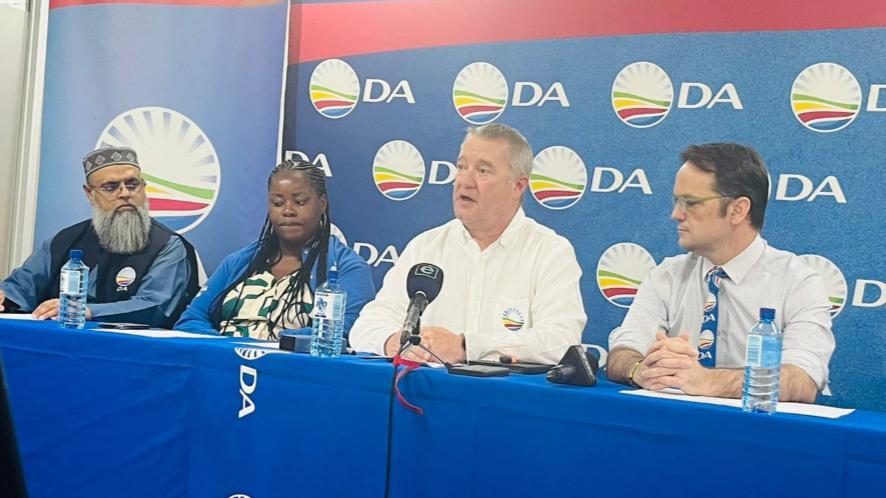Africa-Press – South-Africa. The DA in KZN believes joining the government of provincial unity (GPU) has not diminished its watchdog role but had enhanced its ability to hold the government accountable.
The party joined hands with the ANC, the IFP and the NFP after the 2024 general and provincial elections and is leading two departments in the provincial executive council. Francois Rodgers heads the treasury while Martin Meyer leads the department of public works and infrastructure.
Reflecting on their first year in the GPU on Thursday, Rodgers, who is also the DA’s provincial leader, believes the party has managed to build good relationships with its partners, which has made it possible to address differences with maturity.
“We saw this during the recent proposed VAT hike when the national minister wanted to increase VAT by two percentage points and we were opposed to that and raised it through the premier. We didn’t run out and call each other names, which happened in the GNU, and I think it shows a level of maturity among the partners in the GPU,” he said.
“There have been times we had hot discussions because of the fiscal challenges but even then we managed to hold it together as four political parties.
“Political parties have to listen to each other because none has the majority power in the current cabinet structure and it is in the best interests of the people of KZN to know that the provincial government is well monitored.”
The administration is about to be tested when the parties campaign for the 2026 local government elections.
Rodgers, however, is optimistic the relationship will endure whatever the campaigns put them through.
“We obviously have a long way to go in this journey but I think if you look at the trust and the relationship that we have built, it bodes well for the next four years.”
Despite being a member of the GPU and having good relations with their partners, the party said it has decided to remain a “vigilant opposition” in the provincial government.
“That almost sounds like an oxymoron but it isn’t because it’s our responsibility to make sure that I do what I have to do; I’m not here to be protected by my caucus and the DA MPLs,” said Rodgers.
“I think we’ve shown clearly where there are failures in government, our colleagues who are the chairs or members of portfolios will raise concerns without fear or favour. That just shows how a government of provincial unity can operate.”
Rodgers admitted fiscal challenges they inherited has been a major hindrance.
He pointed at the three frontline departments — education, health and social development — as the ones really struggling under the burden of the fiscal situation.
Rodgers believes these departments can potentially drag the whole province into administration if they, as provincial government, don’t change the fiscal framework.
“Those challenges revolve around the lack of money because we inherited a province that was broke after years of cuts to its equitable share and departments.”
“The frontline departments have a potential to destabilise the entire province which is why we put together the fiscal recovery framework because if we don’t deal with it there is a chance that the entire province could be placed under administration.
“We saw it happen in Limpopo, so we need to be aware of that and this is why I’m trying to pre-empt it.”
The incoming e-procurement system will go a long way in addressing this, he added.
“We’re not going to get out of this mess unless we change the way we operate with money while also ensuring that our focus remains on effective service delivery and building an economy that will create jobs.”
“There is no silver bullet coming from the National Treasury, so we have to change the way we do business.”
For More News And Analysis About South-Africa Follow Africa-Press






